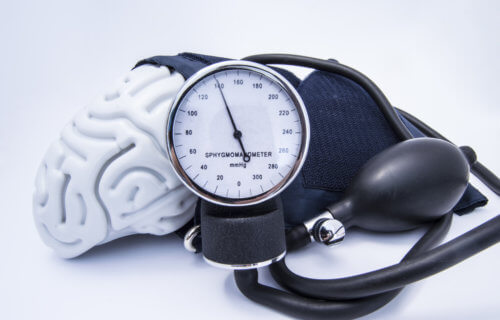ADELAIDE, Australia — Mental illness is harmful to far more than the mind, according to researchers from the University of South Australia. Their study finds mental illness is closely associated with heart rate and blood pressure changes.
Unsteady blood pressure can lead to both organ damage and cardiovascular disease. Study leader and UniSA researcher Dr. Renly Lim explains there is clear evidence to support the notion that mental illness extracts a direct toll on the body’s autonomic functions (blood pressure, heart rate, temperature, and breathing).
“We reviewed 12 studies on people with anxiety, depression and panic disorders and found that, regardless of age, mental illness is significantly associated with greater blood pressure variations during the day,” Dr. Lim says in a university release. “We also found that for people who are mentally ill, their heart rate does not adapt to external stressors as it should.”
“Contrary to what many people think, a healthy heart is not one that beats like a metronome. Instead, it should adjust to withstand environmental and psychological challenges. A constantly changing heart rate is actually a sign of good health.”
Mental illness can keep the body from calming down at night
It’s very common for people diagnosed with a form of mental illness to display a reduced heart rate variation (HRV). A low HRV suggests the body’s stress response is poor, worn down by the effects of chronic stress.
Heart rate, or the number of times a person’s heart beats in a minute, is typically very consistent. HRV, however, is the time between two heartbeats. HRV is more complex, and changes in response to external stressors.
“What we aim for is not a constantly changing heart rate but a high heart rate variation. This is achieved through a healthy diet, exercise, low stress and good mental health,” Dr. Lim adds.
Low HRV usually occurs when the body enters fight or flight mode and is often seen among people living with chronic diseases like cardiovascular disease and mental health problems.
Even when BPV does occur during the day, by the time night rolls around most peoples’ systolic pressure usually drops by 10 to 20 percent, allowing the heart to rest up. Among people with mental illness, however, study authors noted no sufficient nocturnal drops in blood pressure.
This reduction in blood pressure declines at night (under 10%) may be caused by any number of factors. Possibilities include autonomic dysfunction, poor sleep, and disrupted circadian rhythms regulating the sleep-wake cycle.
“The takeout from this study is that we need to pay more attention to the physical impacts of mental illness,” Dr. Lim concludes. “It is a major global burden, affecting between 11-18 percent (one billion) of people worldwide. Since mental illness can contribute to the deterioration of heart and blood pressure regulation, early therapeutic intervention is essential.”
The study is published in BioMedical Engineering OnLine.

